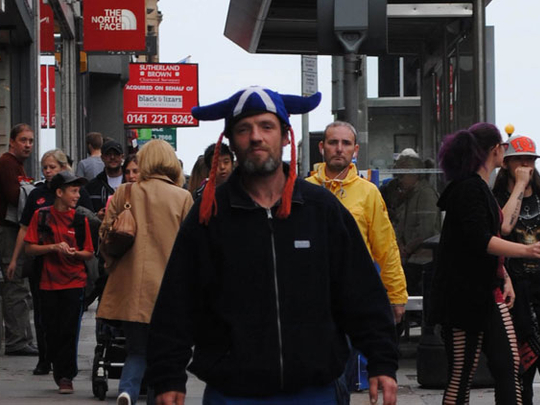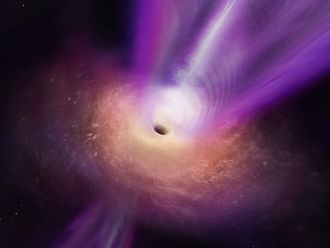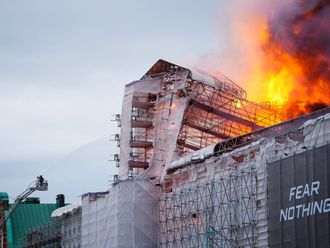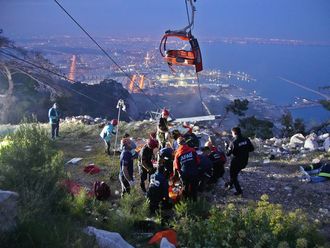
Glasgow: The last full day of campaigning in Scotland took a negative turn when political rivals traded insults and barbs as polls showed the two sides neck and neck.
Opposition leader Ed Miliband was jostled as he visited an Edinburgh shopping centre, forcing his handlers to cut his visit short as he was shouted down by pro-independence ‘yes’ supporters.
Elsewhere, First Minister Alex Salmond was branded a liar as opinion polls showed tens of thousands of the nearly 4.3 million voters still have to make up their mind before polls open at 7am local time.
Voters will be asked on Thursday to answer ‘yes’ or ‘no” to the question: “Should Scotland be an independent country?”. A ‘yes’ vote would spell the end of the 307-year-old union with England and the break-up of the United Kingdom, as well as a period of economic uncertainty.
Three surveys showed support for independence at 48 per cent compared with 52 per cent backing for the union. They found 8 to 14 per cent of Scotland’s 4.3 million voters were still undecided.
Pledges made by Conservatives, Labour and the Liberal Democrats to guarantee more powers for Scotland are winning traction with voters.
A Daily Telegraph poll found that half of Scots believe the referendum has caused deep divisions — with just a quarter believing it to have been a force for good.
The Scottish National Party suffered a blow yesterday when a leaked NHS document reported £450 million (Dh2.6 billion) in cuts are likely after a referendum.
On Tuesday night former US president Bill Clinton stepped into the debate — urging Scots to vote to stay in the UK.
In a statement released through the Better Together campaign, Clinton highlighted issues including uncertainty over currency and the impact on the economy of “long, complex” negotiations.
Alistair Darling, leader of the Better Together pro-union campaign, acknowledged on Wednesday morning that despite the show of unity by David Cameron, Ed Miliband and Nick Clegg, there was a “difference between the parties” over the extent of the powers that would be devolved, but pointed out that had also been the case before the establishment of the Scottish Parliament and the most recent transfer of competences to Holyrood.
“If we vote to go tomorrow, there’s no coming back,” said Darling. “And I think that is something that is very much concentrating minds as we actually go to the time when the polls open.”
Salmond has invited Darling to be part of his “Team Scotland”, which would negotiate the terms of independence after a ‘yes’ vote.
The Labour former chancellor insisted he would continue to play a role in Scottish political life if there was a ‘yes’ vote, but attacked Salmond’s rhetoric.
“What he is actually doing here, this is like an awful lot of some of the nastiness going on in this campaign, is to suggest that somehow you can only be Scottish if you support Alex Salmond.
“That is not true. There are patriotic, fiercely patriotic, Scots, there are many people living in Scotland, who are doing the right thing by saying no thanks.”
“It is very tight,” John Curtice, professor of politics at Strathclyde University, told the Scotsman newspaper.
“At the moment it looks as if the ‘yes’ campaign is going to fall agonisingly short from their perspective. But I have always said this is the ‘no’ campaign’s to lose and it certainly looks as if they have got pretty close to that.”
The momentum gained by the ‘yes’ campaign in the past few months panicked the British establishment. Banks, businesses and investment houses weighed in to predict doom if Scotland broke away, including job losses, rising prices and a capital exodus.
— With inputs from agencies












